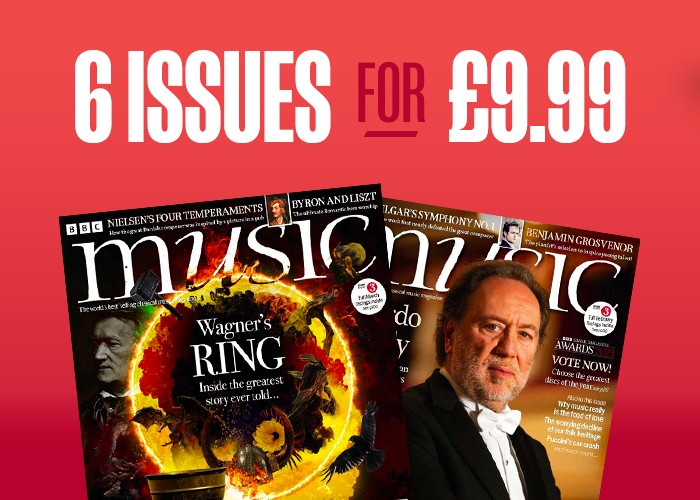Tár: Cate Blanchett on portraying a conductor in new psychodrama
We spoke to actress Cate Blanchett on her demanding new role, playing a power-hungry conductor in Todd Field's new psychological drama, Tár
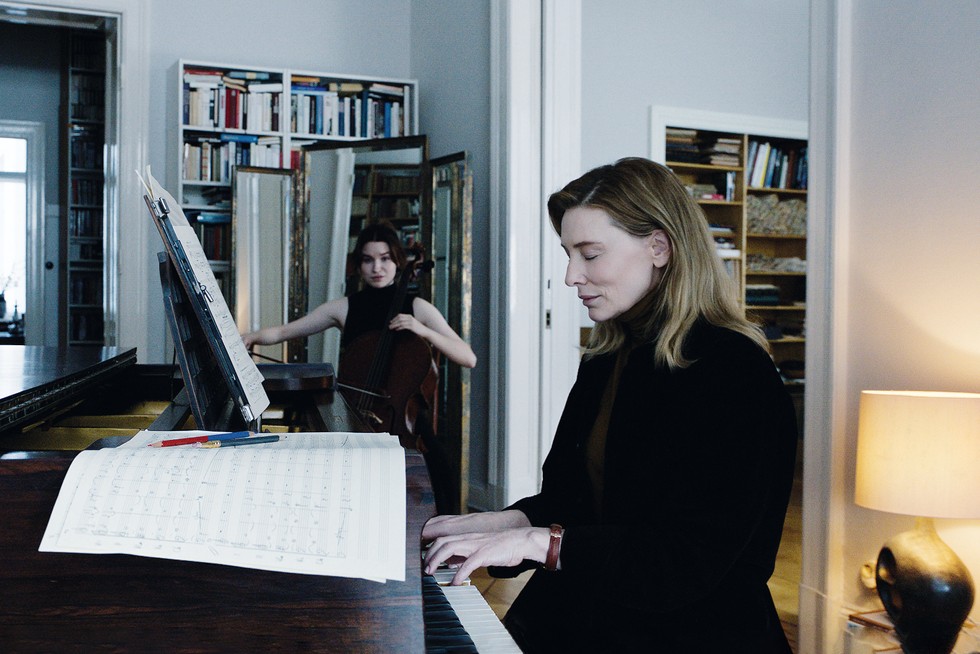
Lydia Tár is the first woman conductor to take the reins of a major German orchestra. But you won’t have heard of this particular conductor, composer and ethnomusicologist, because she is an entirely fictional character. Created by writer/director Todd Field, Tár is brought thrillingly to life by Academy Award-winning actor Cate Blanchett in a film that shocks with its depiction of a spectacular fall from grace, and dazzles with with its intricate musical detail.
What is Cate Blanchett's new film Tár about?
That detail was the result of a deep dive into the world of classical music by Todd Field, whose starting point in 2020 was John Mauceri’s book For the Love of Music. He told me finishing the book ‘electrified’ him and sealed the deal in terms of him wanting to take his idea for the film forward, but he needed further help and couldn’t believe where it came from, as he went on to tell me.
‘I was talking to Universal Music and I said, “I’m about ready to start this thing, do you have anyone that you think would be smart for me to talk to who would be willing to speak with me?” and they said, “well yeah there’s this legendary guy named John Mauceri.” I said, “you’ve got to be kidding me, I just finished his book!”
Mauceri, a one-time pupil and protegé of Leonard Bernstein, is today one of the most highly esteemed conductors and musical minds in the US. As the film’s official music advisor he would become integral to the director’s navigation of the classical world.
‘John said to me, “look, before we get to talking read my other book, Maestros and their Music, and before that you might want to do this…” So he kind of gave me this course to take, before I got into masterclasses with him. And that was absolutely fantastic, it felt like a thrilling privilege and such a highly rarefied opportunity.’
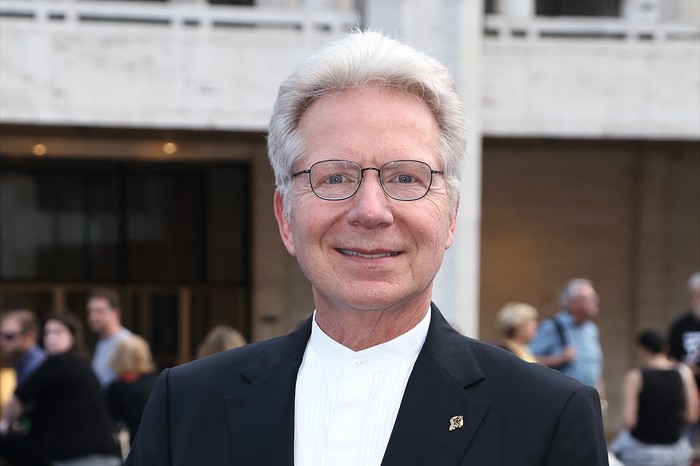
We were fortunate enough to be joined by Mauceri in our conversation, and the maestro was quick to share that, ‘you have to be very careful when you talk to Todd, because he actually remembers what you say!’ Such recall served him (and the audience) well, for the film is littered with observations, blink-and-you’ll-miss-them references and familiar names classical music fans will recognise.
‘It had a giant impact on how the script was written,’ Field continues, ‘because essentially I had a character who is clearly an accomplished musician, however she’s also perhaps a bit overly concerned with legacy.’
More like this
Who does Cate Blanchett play in the film Tár?
Tár is a film about the very nature of the creation of music from pencil to podium, told via a character who (like any number of notable men before her) would stop at nothing in order to stake a claim on and ensure her place in its story. So it’s as much a film about power as it is music, Lydia Tár seemingly indestructible as she holds court over one of the greatest orchestras, the musical world at her feet. But in an age when the actions of those in positions of power are under ever-closer scrutiny, it’s Tár's blinding sense of indestructibility that is ultimately her undoing.
For Cate Blanchett, the key to getting under the skin of the character was authenticity and truly understanding a composer/conductor’s environment.
‘In order for people to buy into the reality of the stakes of the drama and the character’s predicament,’ she tells me, ‘it was absolutely essential that I steep myself in the practical day-to-day realities of someone who is working at that level of skill in the classical music world, and that her skill and her, dare I say, right to be there is unassailable.’
Such practicalities had to include learning about conducting, but with the pandemic in full swing, Blanchett would have to fend for herself and call in favours from friends, as she explained to me.
‘Conducting is all about presence, power, charisma, that mercurial thing that passes between a human being on the podium and the orchestra, and I couldn’t sit with anyone! So I started off by panicking and then, thank god for the internet, I went to the masterclasses of Ilya Musin. So I started with that and I knew conductor Natalie Murray Beale so I said, “look, I’m desperate, is there any way? You’re probably busy!” but she was just so generous with her time and her insight.’
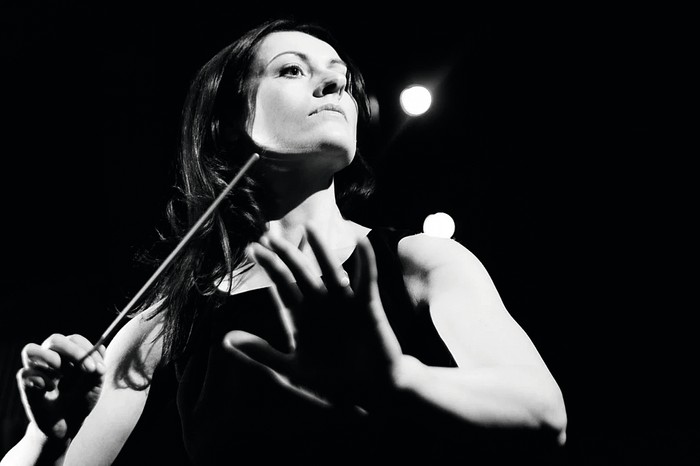
How did Cate Blanchett get into the role of a conductor for Tár?
Murray Beale guided Blanchett through the technical aspects of conducting, topped up by her own reading of John Mauceri’s writings on the subject – ‘his insights into the art of conducting, both practical and ephemeral, were really useful to me,’ she said. As for coming up with the character’s baton style, the actor did hours of watching and listening to draw on a number of figures, as she explains.
‘I did a deep dive into everybody’s conducting style, a bit like a Bowerbird, to pick and choose. So there are people who’ve fallen from grace, there’s obviously people that I naturally gravitated towards, like we all do. I love Bernard Haitink, Nathalie Stutzmann and Simone Young; but this is not a character who is based on anyone.’
It wasn’t just the musical insights she needed, for Lydia Tár is someone of questionable conscience and motivation in her pursuit of glory, as Blanchett reveals.
‘I thought about power as much as I thought about any particular musician; so I looked a lot at Gergiev, actually – talk about someone who has fallen out of favour, simply because he’s got his fingers in so many pies, politically and institutionally, and has kind of a flagrant disregard for power and yet is steeped in it. So I found that very interesting.’
Did Cate Blanchett actually conduct a full orchestra for Tár?
Blanchett would have the challenge of actually conducting the Dresden Philharmonic during two weeks of shooting of rehearsal scenes at the city’s Kulturpalast. I asked her what it was like to stand on the podium there for the first time.
‘Oh it was terrifying, because they can sniff inauthenticity at a hundred paces,’ she shared. ‘I suppose what worked in my favour was they hadn’t been playing big orchestral works because of the pandemic, and they had not been in the room together. So when I gave the downbeat they were slightly out of sync and we all laughed. Also they were out of their comfort zone, because they had to act.
'When I got up I thanked them for their patience, in my school-girl German, and said that we needed to rehearse together, that they had to act and I had to conduct, and together somehow we would find our way. I think they sensed genuine humility, or my plea for help!’
What role does British cellist Sophie Kauer play in the film?
Having real musicians play their parts, quite literally, is a boon for the film’s musical authenticity, which was taken a step further with the casting of British cellist Sophie Kauer as Olga Metkina. Aside from delivering a fine dramatic performance as the young Russian cellist, new orchestra member and object of Tár’s obsession, she also performs Elgar’s Cello Concerto. Todd Field was hugely impressed by Kauer’s contribution.
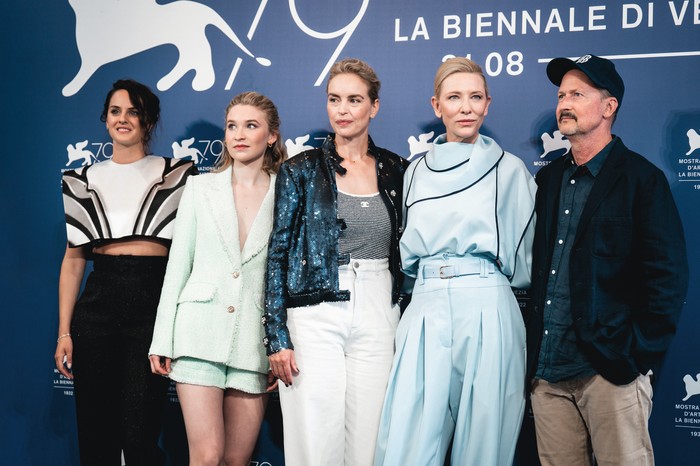
‘Sophie had so much confidence, composure and poise,’ he told me. ‘To be sitting with an orchestra of the calibre of the LSO for the first time would be terrifying enough, but to be playing scenes with Cate Blanchett would be equally frightening for many people. She really had a level of maturity; she was 19 when she was cast and really showed up and just did the most remarkable work.’
What music is played in the film Tár?
The London Symphony Orchestra appears on the soundtrack with Kauer, conducted by Natalie Murray Beale, performing the Elgar Cello Concerto. It’s just one part of the complex musicscape of this film; indeed some 26 minutes of the music in the film is actually played on screen, in real time. Aside from the Elgar, Mahler’s Fifth (performed by the Dresden Philharmonic under Cate Blanchett) makes a notable appearance, and then there’s Bach’s Well-Tempered Clavier, performed by Blanchett herself. Taking to the keyboard required further commitment from the actor who found teachers in Budapest and London while working on other projects – ‘I don’t know when she slept,’ quips Field. For Blanchett, though, it was something she relished, having originally learned to play as a child.
‘It was wonderful,’ she tells me. ‘With every pregnancy I’ve said “I’m going to go back and pick the piano up,” but then life happens – it’s a terrible indictment on me as a human being that I don’t pick anything up unless it’s for work. So that was an absolute joy, and it’s something that I vow I’ll continue, not because I’m a musician by any stretch of the imagination, but certainly for pleasure.’
The unfolding drama is further aided by composer Hildur Guðnodóttir, whose own scintillating original music lives within and without the film, as she provides both the music Lydia composes at the piano and the film’s traditional underscore. Though there would be nothing traditional about her music or how it would be used, as Todd Field explains.
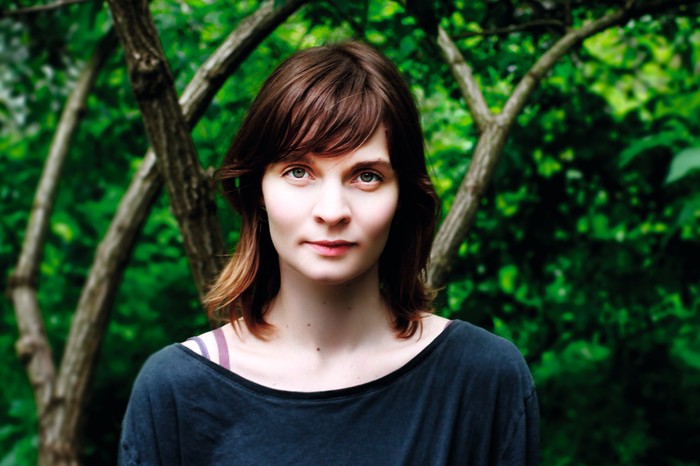
‘There needed to be some kind of propulsion in places for this character, because she feels like there’s something on her back. And so that needed to be represented with some kind of score, and the hope was that it was something you’d only really notice in its absence, as opposed to it ever announcing itself. I’ve admired Hildur’s music for a very long time. She works in a very intent, sonic space and there’s nothing arbitrary about what she does; there’s a real philosophy behind her choices, even if you can’t see them.’
He continues, ‘She asked very interesting questions like “what kind of gait does this character have, how does she walk?” And we landed on 120 beats, and so she scored pieces at 120 beats that Cate would then wear in her ear. So if you look at the way she moves, she’s almost always moving at the same rate. She designed a whole slew of things which she recorded with the London Contemporary Orchestra before we ever shot, just to be played in the actors’ ears.’
It becomes clear that Tár is almost, in its way, a musical, so tied up is it in ideas of flow, rhythm and sonic intent. There’s even something operatic about it, the audience watching in horror as Lydia’s carefully constructed world frays at the seams, then tears to shreds.
John Mauceri hails Tár as ‘an amazing achievement’. I’m inclined to agree.
Tár is released in UK cinemas on 13 January
Authors

Michael is the Reviews Editor of BBC Music Magazine. He was previously a freelance film music journalist and spent 15 years at St George's Bristol. Michael specialises in film and television music and was the Editor of MusicfromtheMovies.com. He has written for the BBC Proms, BBC Concert Orchestra, Royal Philharmonic Orchestra, Royal Albert Hall, Hollywood in Vienna and Silva Screen Records.


